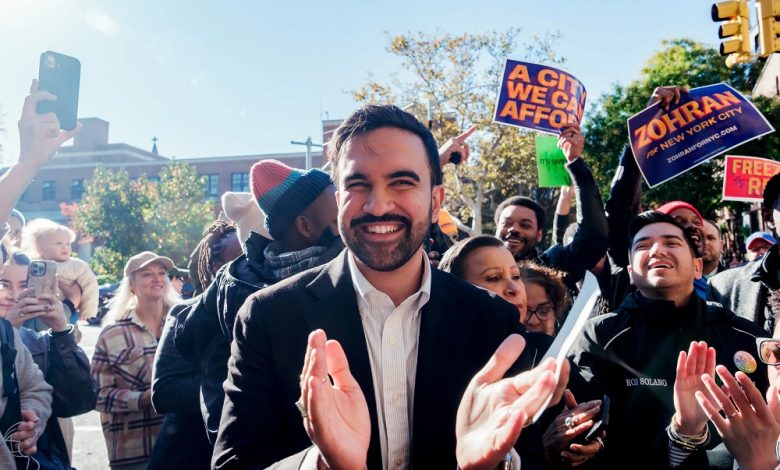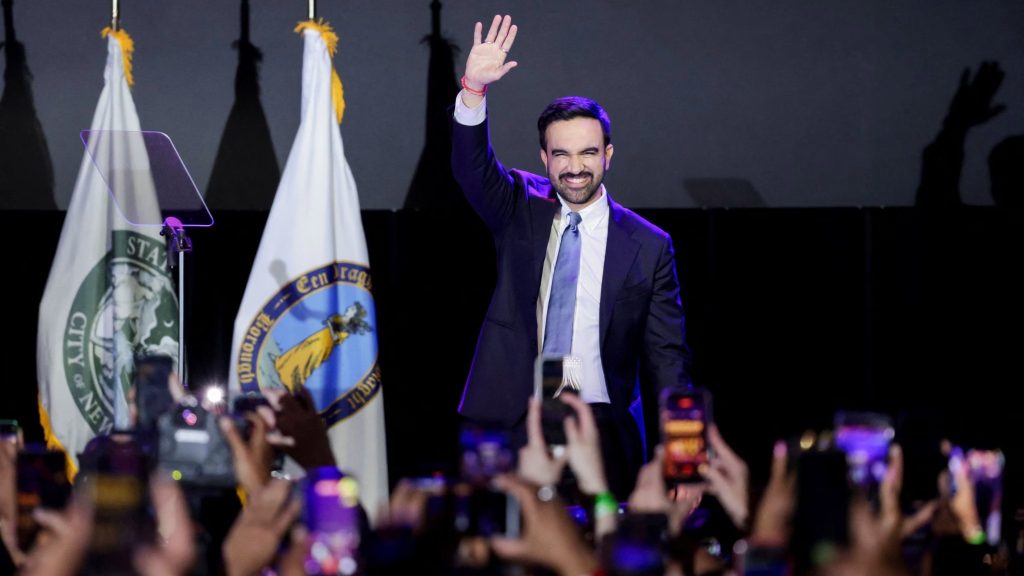Arab and Muslim Americans Redefine U.S. Politics After 2025 Elections
From Zahran Mamdani’s win in New York to Abdullah Hammoud’s landslide in Michigan, Arab and Muslim Americans turn protest into power.

The polls closed on November 4, 2025 — but the real story in the United States is only just beginning. What happened this year was far more than a victory at the ballot box; it was a political and social earthquake, and Arab and Muslim American voters were at its epicenter. The tremors from this shift will not stay within U.S. borders — their echoes will be felt around the world.
The New York Earthquake: Zahran Mamdani’s Historic Win
New York City — the beating heart of global capitalism, home to Wall Street, and a metropolis with a $110 billion annual budget (roughly equal to the combined budgets of Egypt and the UAE) — has always been a bastion of establishment politics. Yet for the first time in its history, this city was wrested away from the grip of America’s two dominant parties by Zahran Mamdani, a 34-year-old democratic socialist, progressive, and proudly pro-Palestinian Muslim.
To clarify: when we say “Muslim,” it’s a reference to identity and heritage, not religious activism. Mamdani is a progressive Democrat who achieved the unthinkable — winning in what is often described as “the most Jewish city in the world,” with over two million Jewish residents and a powerful pro-Israel lobby.
How did he do it?
Against the odds, Mamdani faced an imperial capitalist system that branded him “a communist.” Twenty-six billionaires — including former mayor Michael Bloomberg, who poured $8 million into his opponent Andrew Cuomo’s campaign — lined up against him. The media machine worked to paint him as “the Muslim outsider.”
Yet he won.
He built his victory on a rapidly expanding base: the progressive Democrats represented by Bernie Sanders, Rashida Tlaib, and Alexandria Ocasio-Cortez. Mamdani forged strong alliances with labor unions, leftist Jewish groups, and representatives of marginalized communities.
But his most powerful weapon was his identity. Rather than downplaying it, he embraced it. The Palestinian cause, now central to a new generation’s struggle for justice, became a moral rallying cry. Mamdani didn’t hide from it — he declared his support loudly, calling for an end to genocide in Gaza and vowing to have Benjamin Netanyahu tried as a war criminal.
He connected his heritage to people’s daily struggles. He even released a full campaign ad in Arabic, telling voters: “I am from you and for you.” His term “Halalflation” — describing rising food prices in halal markets and street carts — went viral.
Mamdani has redrawn the progressive map: showing that being pro-Palestinian and proudly Muslim is not a political liability — it’s a winning strategy.

Beyond New York: Breaking Barriers and Political Maturity
This political earthquake didn’t stop at New York’s borders.
In Virginia, history was made with the election of Ghazala Hashmi as the state’s Lieutenant Governor — the first Muslim woman ever to hold a statewide office in U.S. history. Her win proved that Muslim and immigrant candidates can build broad, cross-community coalitions.
In Michigan, the story is even more striking. The same Arab and Palestinian American voters who led the 2024 “Listen to Michigan” protest campaign — where over 100,000 Democrats voted “uncommitted” to rebuke President Biden’s pro-Israel stance — returned to the polls this year. But this time, they voted for something: re-electing Dearborn Mayor Abdullah Hammoud, a progressive Democrat, with over 70% of the vote.
This is not contradiction — it’s political maturity. In 2024, voters used their ballots to protest national foreign policy; in 2025, they used them to reward effective local leadership. Their message to both parties was unmistakable:“Our votes are not guaranteed. You must earn them.”
Building from the Ground Up: The Next Generation of Leaders
The most significant story, however, may not be these high-profile victories — but what’s happening at the grassroots.
Across Chicago’s suburbs, the number of Arab and Muslim candidates quadrupled this year. Why? It was a direct response to exclusion. When a local mayor dismissed residents demanding a Gaza ceasefire by telling them to “go back to your country,” they didn’t just protest — they ran for office. The result? Eighteen seats won across local school boards, library boards, and municipal councils.
In New Jersey, Alaa Abdelaziz, a Palestinian-American councilman from Paterson, leveraged his local base to win a state legislative seat — while his aide, Omar, succeeded him on the city council. It’s a model of political succession and institutional building.

From Protest to Power
The 2025 elections mark a profound transformation: Arab and Muslim Americans have shifted from being a “protest bloc” to a “governing bloc.”
In 2024, their message was rejection — “uncommitted” votes, and in some cases, support for Trump as protest against Biden’s foreign policy.
In 2025, their message was construction — victories, coalitions, and the building of long-term power.
These communities have now proven they can win America’s largest city, capture statewide offices, and build deep political infrastructure in local councils across the country.
The result is nothing short of historic:The birth of a new generation of Arab and Muslim American leaders — and a permanent reshaping of the U.S. political landscape.



